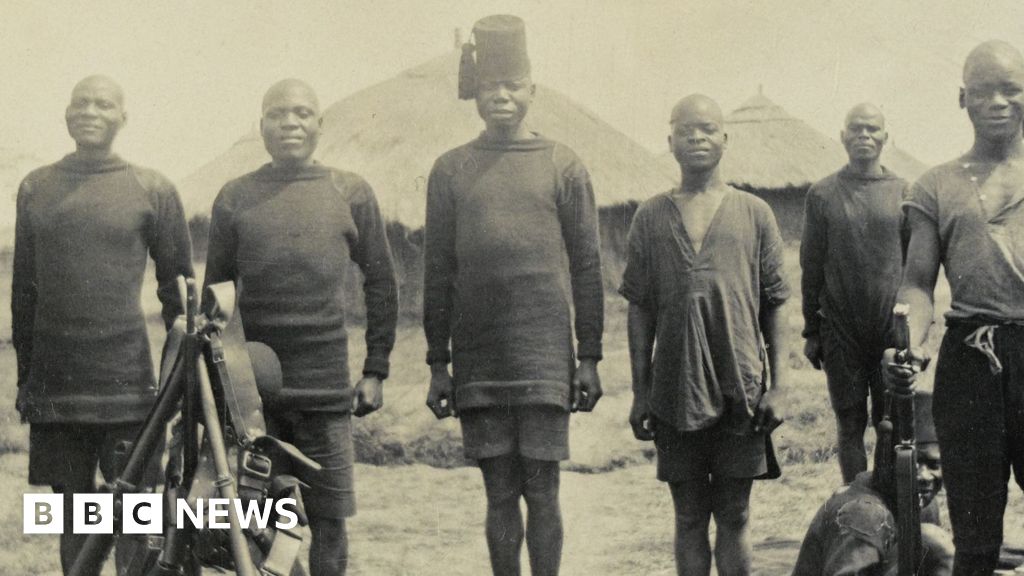Trove of records reveals Kenya's forgotten World War soldiers

Kenya's Forgotten World War Soldiers: Trove of Records Unearths Lost Stories
A newly discovered trove of colonial-era military records in Kenya is shedding light on the largely unacknowledged sacrifices of thousands of African soldiers who fought for the British Empire in both World Wars. The records, unearthed by the Commonwealth War Graves Commission (CWGC) in collaboration with the Kenyan Defence Forces, are providing families with long-awaited answers about the fate of relatives who disappeared during the conflicts, often without a trace.
Unearthing History, One Name at a Time
For decades, the contributions of African soldiers have been overlooked in mainstream narratives of the World Wars. Unlike their European counterparts, many were not formally commemorated, leaving families with unanswered questions and a sense of profound loss. The CWGC's discovery aims to rectify this historical imbalance, providing closure and recognition to the descendants of these forgotten heroes.
The case of Mutuku Ing'ati exemplifies the impact of this historical rediscovery. Ing'ati left his village in southern Kenya around 85 years ago and vanished. His nephew, Benjamin Mutuku, only learned decades later, through the CWGC, that his uncle had enlisted in the East African Scouts and was killed in action in 1943. While grateful for the information, Mr. Mutuku laments the fact that his uncle's final resting place remains unknown, a significant concern for his Akamba community, which places great importance on burial near family.
A Treasure Trove of Colonial Records
The unearthed records primarily concern the King's African Rifles, a regiment comprised of East African soldiers who fought against German forces in East Africa during World War One and against Japanese troops in Myanmar during World War Two. The documents offer details like names, ranks, physical descriptions, and even acts of bravery. Among those identified are George Williams, a decorated sergeant major, and Abdulla Fadlumulla, a Ugandan soldier who enlisted at the young age of 16 and died in action just over a year later.
Historical Significance and Impact
Dr. Elizabeth Schmidt, a historian specializing in African involvement in the World Wars, emphasized the importance of these discoveries: "These records are crucial for understanding the complex relationship between colonial powers and their African subjects. They reveal the extent to which Africans were involved in global conflicts, often serving on the front lines with limited recognition or compensation. This information is vital for a more accurate and inclusive historical narrative."
The CWGC's efforts extend beyond simply identifying names. They aim to understand the circumstances surrounding the deaths of these soldiers and, where possible, locate their remains. This painstaking process involves cross-referencing various historical sources and collaborating with local communities.
Reclaiming a Shared History
Patrick Abungu, a historian at CWGC's Kenya office, highlights the personal significance of this work. His own great uncle was conscripted during World War One and never returned. "It's very traumatic to lose a loved one and not know where they are," he says. "It does not matter how many years go by, people will always look at the gate and hope that he will walk in one day."
The CWGC plans to build memorials to commemorate the identified soldiers and integrate this information into Kenya's school curriculum. This initiative aims to educate future generations about the contributions and sacrifices of African soldiers in the World Wars, fostering a deeper understanding of their shared history.
Looking to the Future
According to George Hay, a historian at the CWGC, the ultimate goal is to empower communities to reclaim their own history. "The only way any of this matters is that it isn't coming from people like me saying, 'This is your history'," he stated. "It's about people saying, 'This is our history' - and using the materials that we're working with."
The CWGC's commitment to this endeavor is unwavering. "There is no end date... I mean this could go on for 1,000 years," says Mr. Abungu, emphasizing the long-term commitment to remembering those who went away and never came back.
The Commonwealth War Graves Commission (CWGC) is working to commemorate those who died in the two World Wars. The King's African Rifles fought in both World War One and World War Two. Thousands of Kenyan soldiers fought in the British army during the world wars.
The rediscovery of these records marks a significant step towards acknowledging the vital role played by African soldiers in global conflicts, ensuring their sacrifices are never forgotten.
Originally sourced from: BBC News Africa
